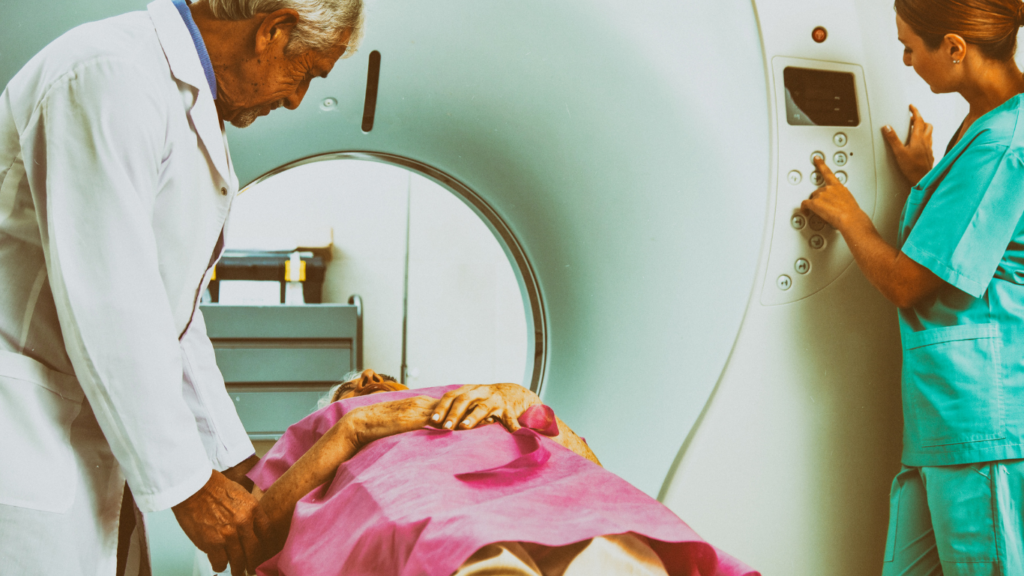03 Apr Cancer Control Month
Cancer Control Awareness Month

30-50% of all cancer deaths are preventable. National Cancer Control Month helps teach Americans how to prevent and control cancer.
April is recognized as National Cancer Control Month in the United States, a time to raise awareness about the devastating impact of cancer and encourage people to take proactive steps to prevent and control this disease. One of the most important ways to achieve this goal is through regular preventative screenings.
Cancer is a complex disease that can affect any part of the body, and it can develop without any noticeable symptoms. By the time cancer is detected, it may have already progressed to an advanced stage, making it more difficult to treat. Preventative screenings are designed to detect cancer early, before it has a chance to spread, when it is most treatable and has the best chance of being cured.
There are many different types of preventative screenings available, including mammograms for breast cancer, colonoscopies for colorectal cancer, Pap tests for cervical cancer, and skin exams for skin cancer. Each screening test is tailored to the specific type of cancer it is designed to detect and is based on factors such as age, gender, and family history.
Despite the clear benefits of preventative screenings, many people still fail to take advantage of them. There are several reasons for this, including fear, denial, and a lack of awareness. Some people may be afraid of what they might find out, while others may believe that cancer only happens to other people. Many people may not even be aware of the different types of screenings available or may not understand how important they are for their health.
To help address these barriers, it is important for healthcare providers, community leaders, and public health advocates to work together to raise awareness about the importance of preventative screenings. This can include providing educational resources, hosting community events, and partnering with local organizations to reach underserved populations.
By working together to promote preventative screenings, we can help reduce the impact of cancer and improve the health of our communities. This National Cancer Control Month, let’s commit to taking proactive steps to prevent and control cancer, starting with regular preventative screenings.
Thyroid hormones are responsible for regulating how much body energy uses. If overproduction of thyroid hormones occurs, it will result in your body speeding up its metabolism and biological functions. As your body speeds up, the symptoms of Graves’ disease will present as:
What Should I Do if I Think I Have Cancer?
If you suspect that you may have cancer, it can be a very overwhelming and frightening experience. While it’s important to remember that not all symptoms are caused by cancer, it’s essential to take any possible symptoms seriously and seek medical attention as soon as possible.
Here are some steps to follow if you think you may have cancer:
1. See a doctor
If you suspect that you may have cancer, it can be a very overwhelming and frightening experience.
While it’s important to remember that not all symptoms are caused by cancer, it’s essential to take any possible symptoms seriously and seek medical attention as soon as possible.
2. Get a second opinion
If you receive a diagnosis of cancer, you may benefit from getting a second opinion from another doctor or specialist.
A second opinion can confirm the diagnosis and give you a better understanding of your treatment options.

3. Gather information
Once you have a diagnosis, it’s important to gather as much information as possible about your specific type of cancer. Your doctor, cancer organizations, and online resources can all provide valuable information about the disease, treatment options, and coping strategies.
4. Create a support system
Coping with a cancer diagnosis can be emotionally and physically challenging. Creating a support system of friends, family, and healthcare professionals can provide you with the emotional and practical support you need to navigate the cancer journey.
5. Take Care of Yourself
Self-care is essential when dealing with cancer. This includes eating a healthy diet, getting enough rest, and engaging in physical activity as recommended by your healthcare team. Additionally, engaging in stress-reducing activities like yoga or meditation can help you cope with the emotional challenges of cancer.
6. Follow Your Treatment Plan
Once you have a treatment plan in place, it’s important to follow it as closely as possible. This may include surgery, chemotherapy, radiation, or a combination of treatments. Your healthcare team will work with you to develop a plan that is tailored to your specific needs and preferences.
Where Can I get my Immunotherapy?
Remember, early detection is key when it comes to cancer. If you are experiencing any possible symptoms, don’t hesitate to seek medical attention. By taking the necessary steps and following your treatment plan, you can increase your chances of beating cancer and living a full and healthy life.
At Pure Infusion Suites, we put our patients first. We offer flexible scheduling, co-pay assistance, and other financial aid programs, as well as private suites equipped with recliners, flatscreen TVs, and snacks and drinks for you and your loved ones to enjoy.
Pure Infusion Suites currently has locations in Colorado, Idaho, Montana, and Utah offering oncology care. Our founders created Pure Infusion Suites to make the infusion process comfortable, streamlined, and affordable.
Our expertly trained staff will be with you throughout the infusion process to ensure easy referrals and insurance authorizations and reduce the cost of your infusion where we can.
At Pure Infusion Suites, you will skip the long lines at the hospital and be provided with your suite, where you can enjoy your favorite shows, snacks, and food during your infusion appointment.
f you have been prescribed immunotherapy during their cancer journey and are looking for a patient-focused infusion experience, call us at 855.550.3358
Sorry, the comment form is closed at this time.